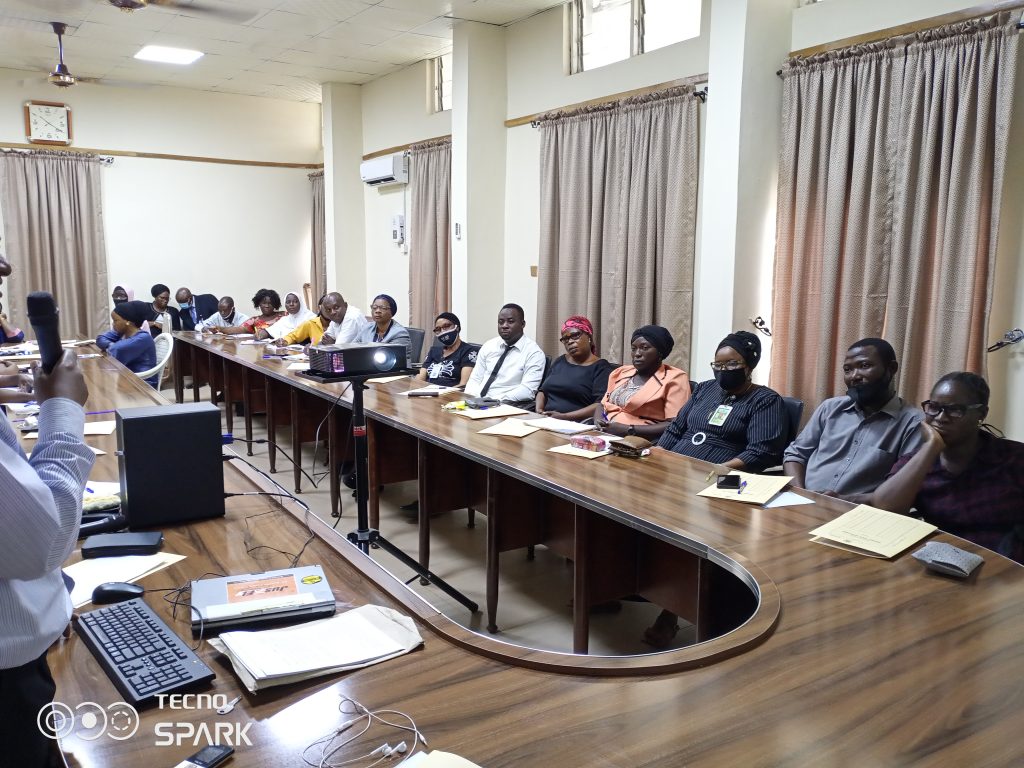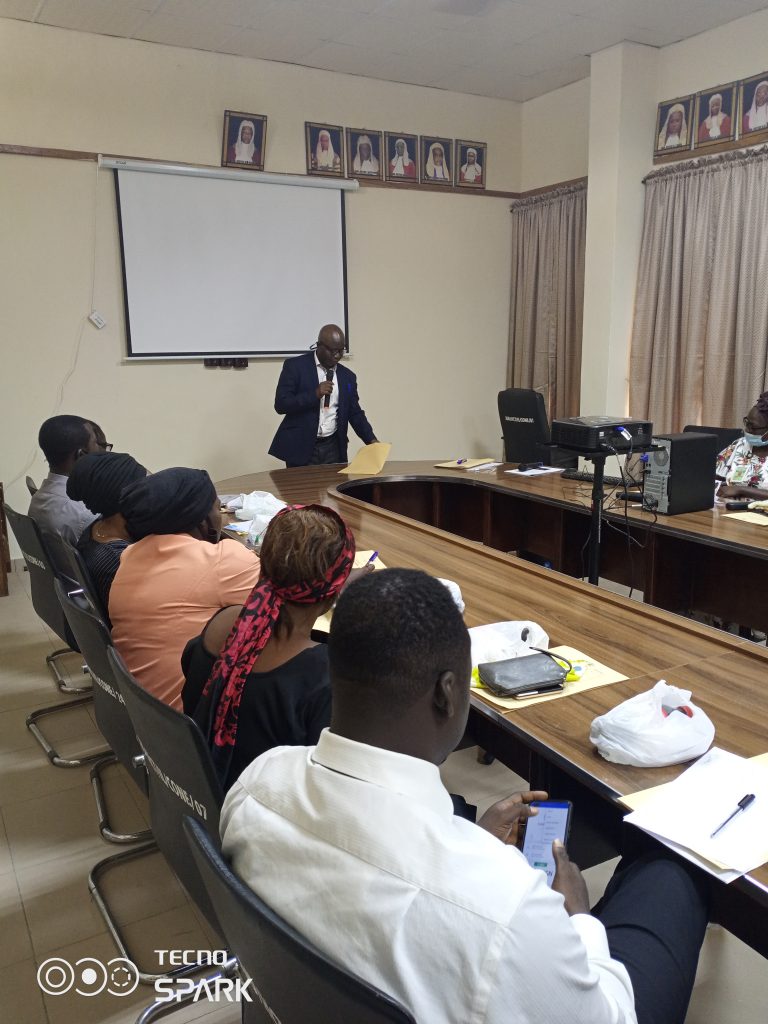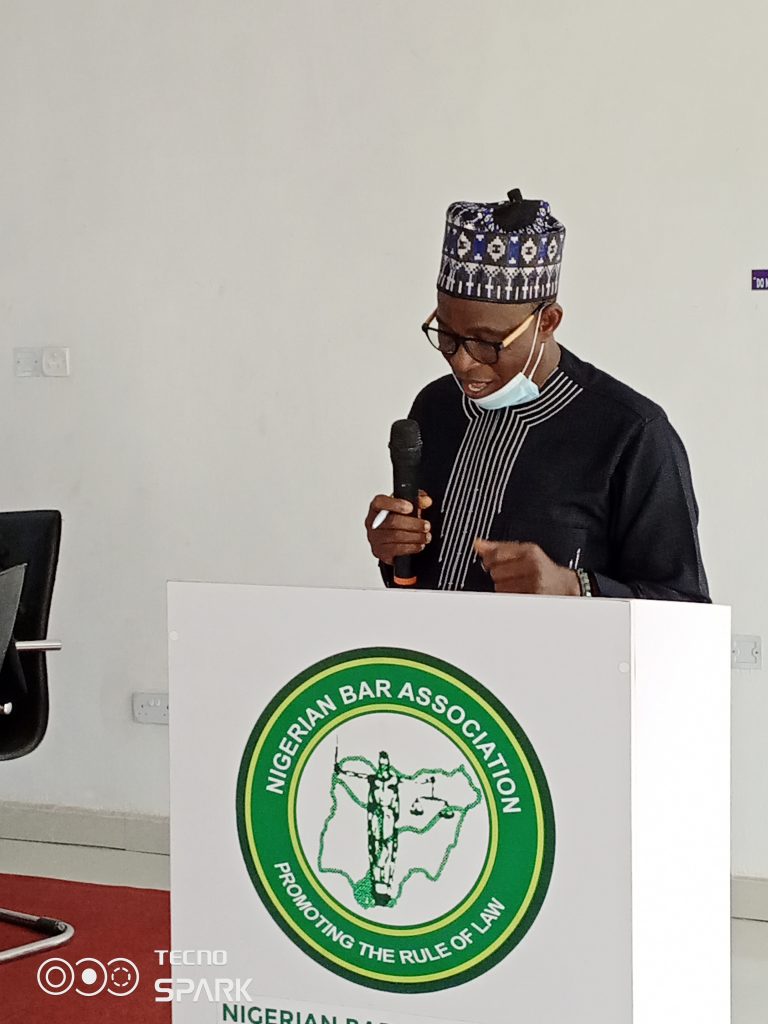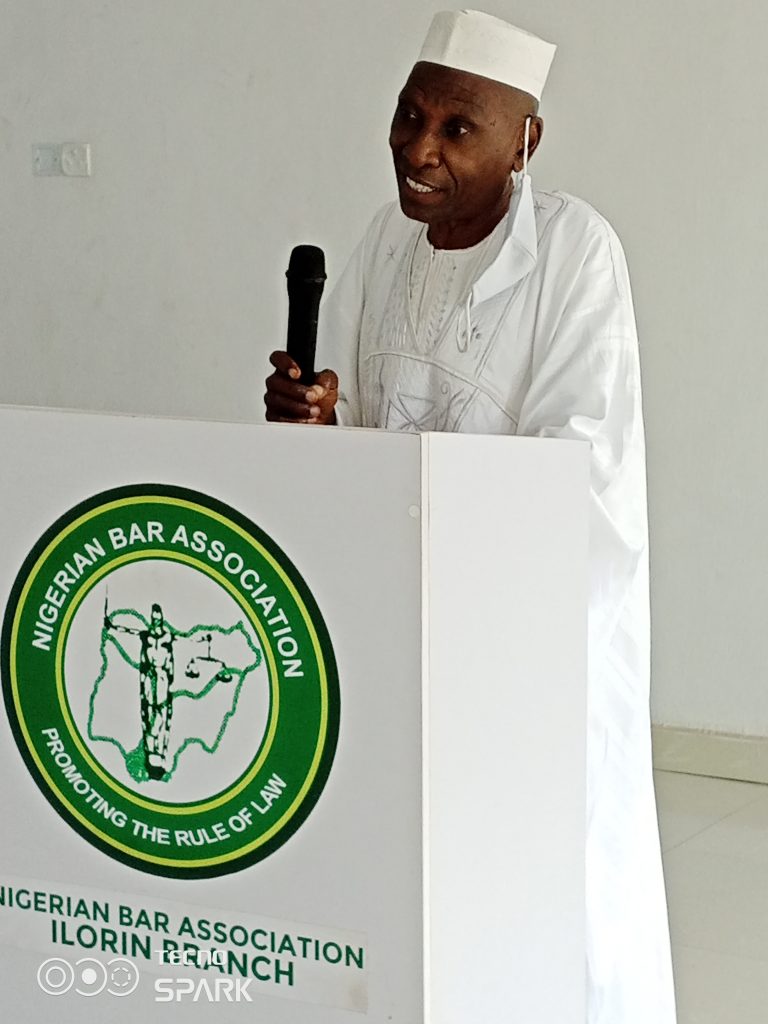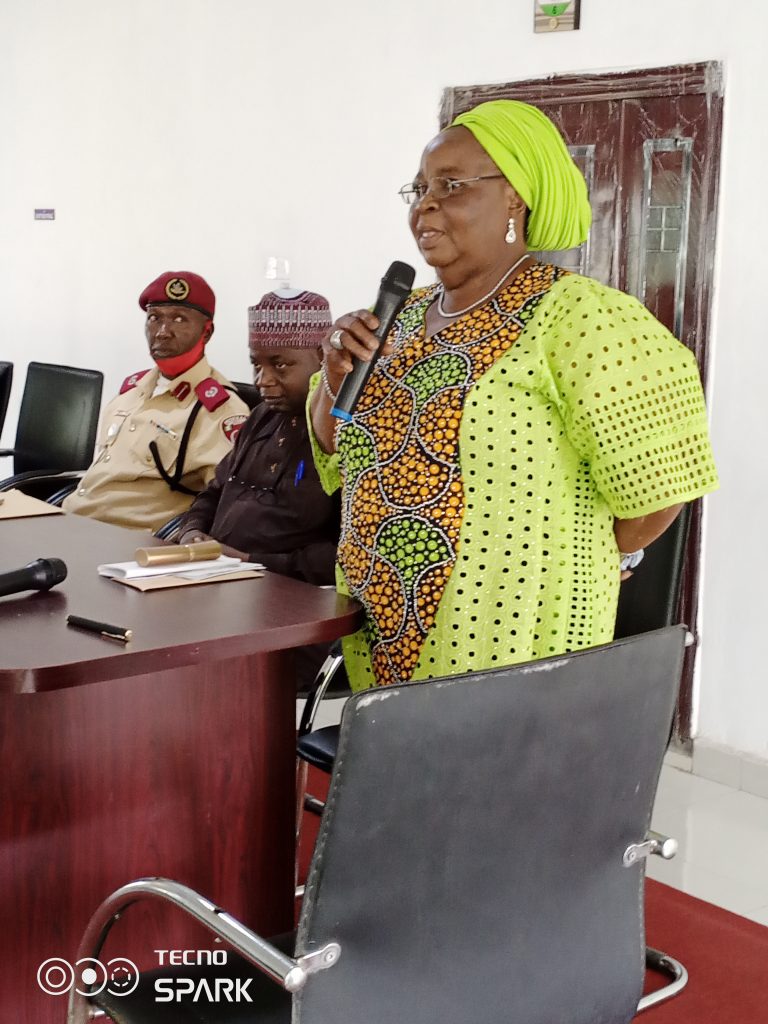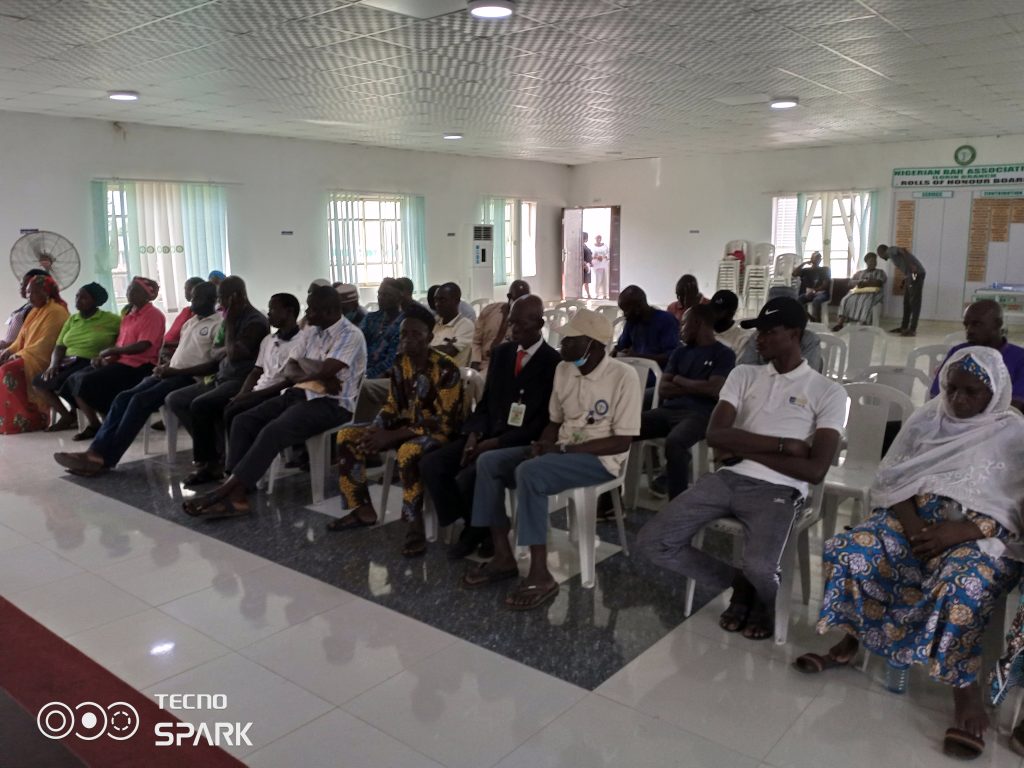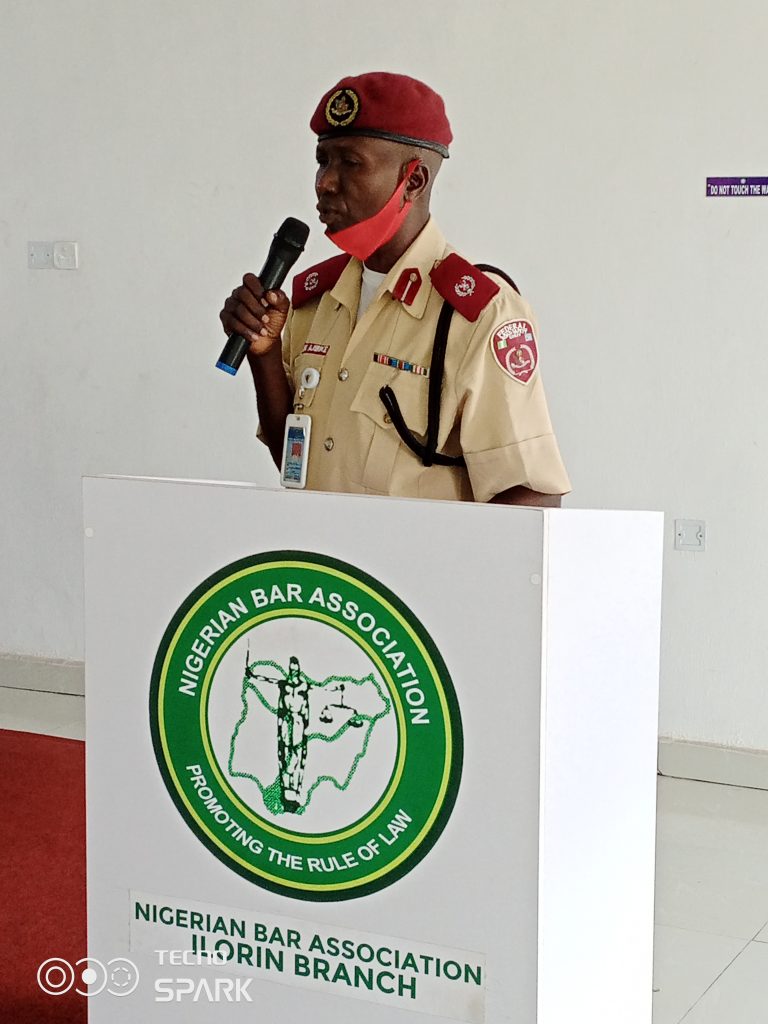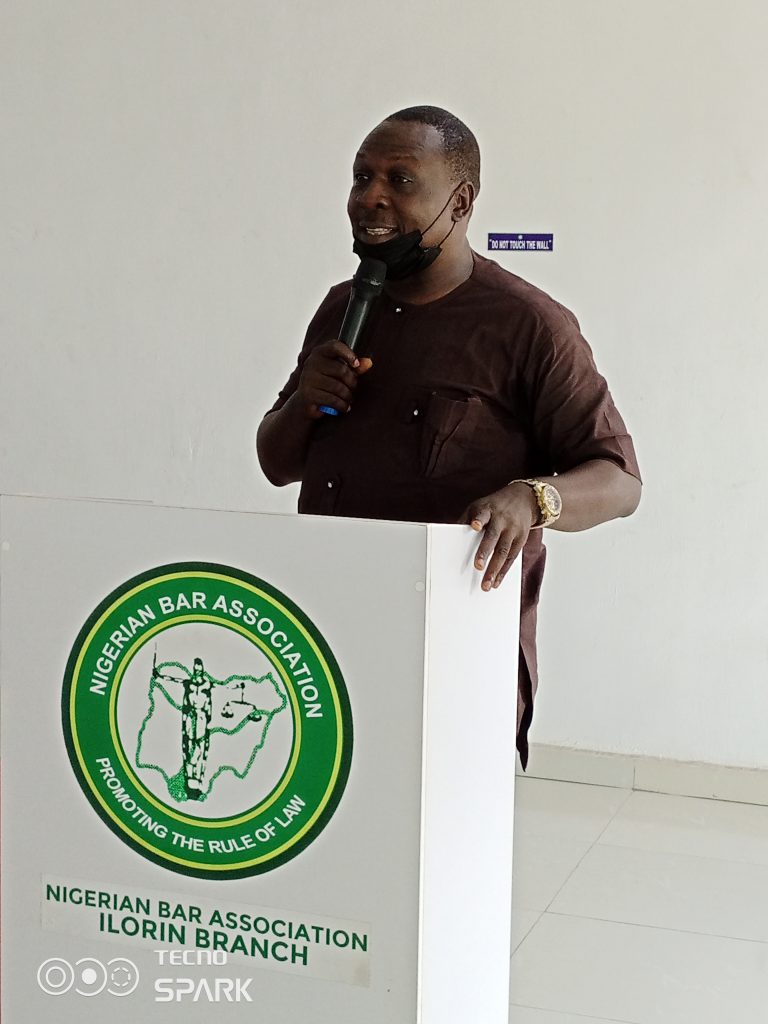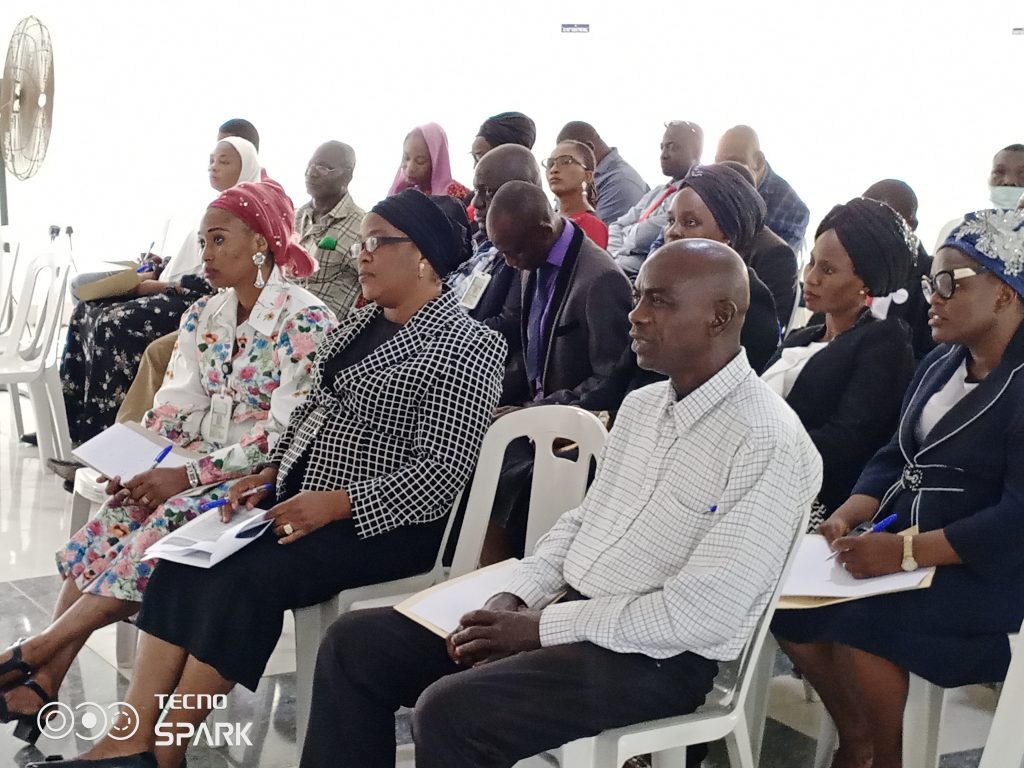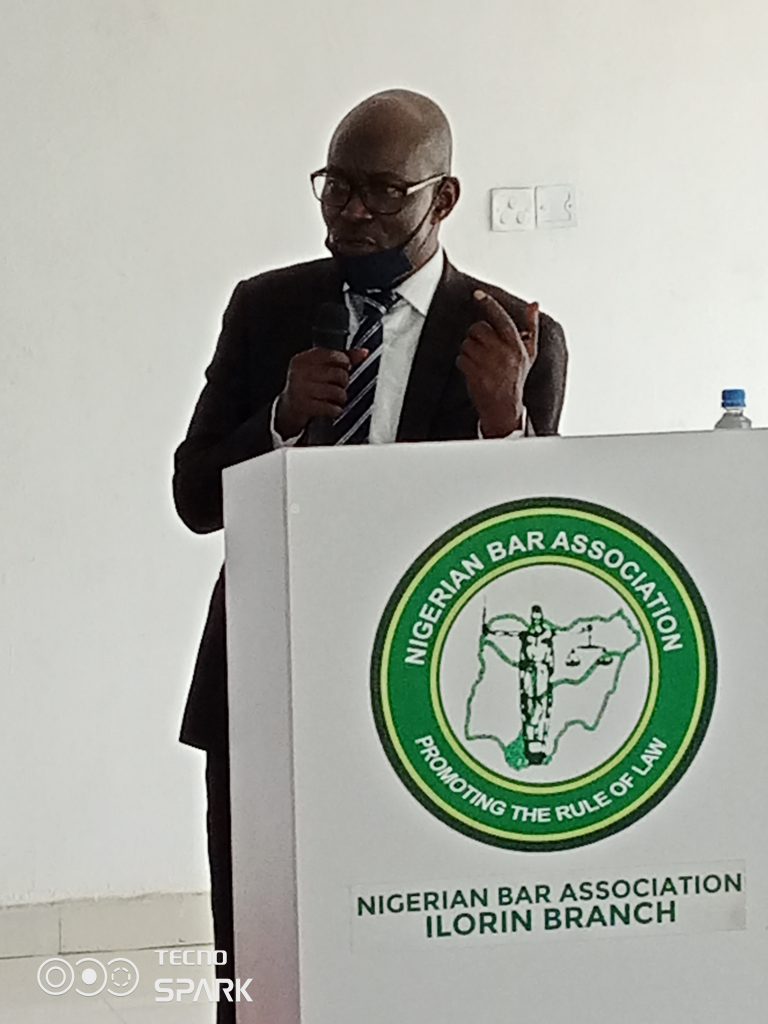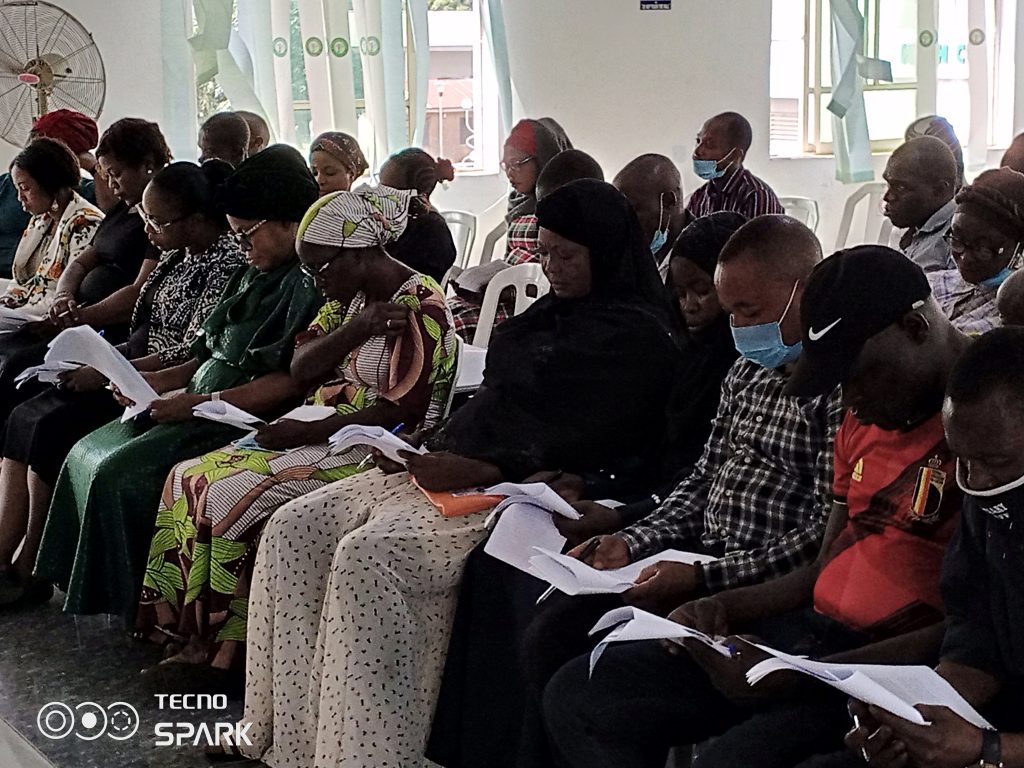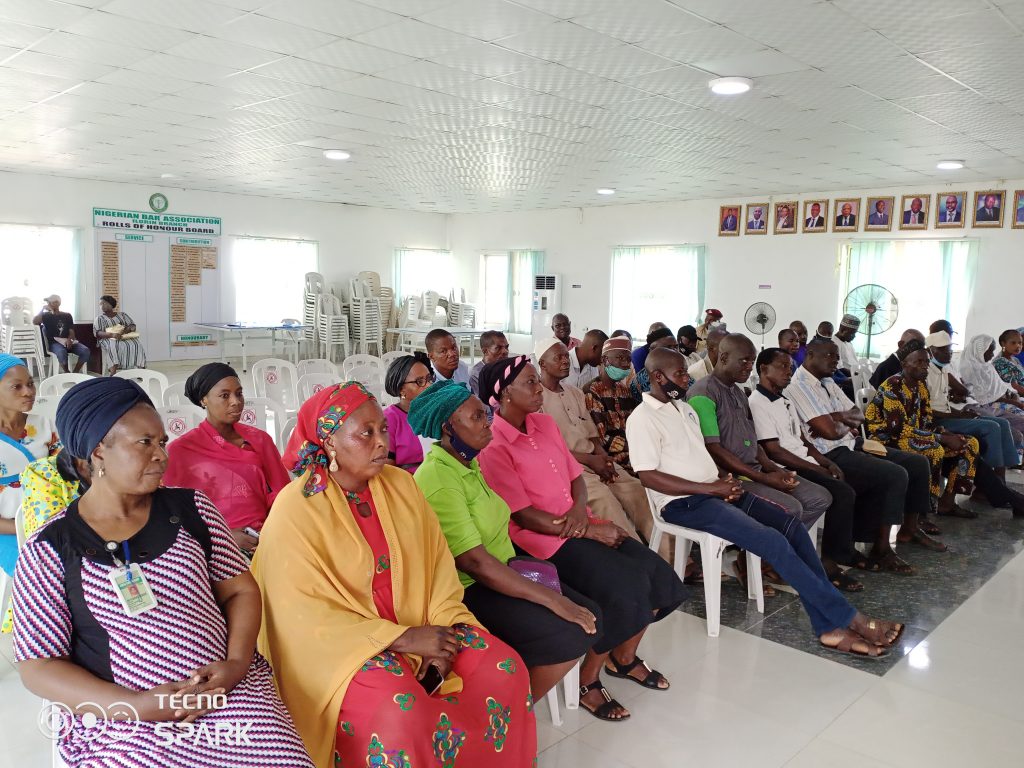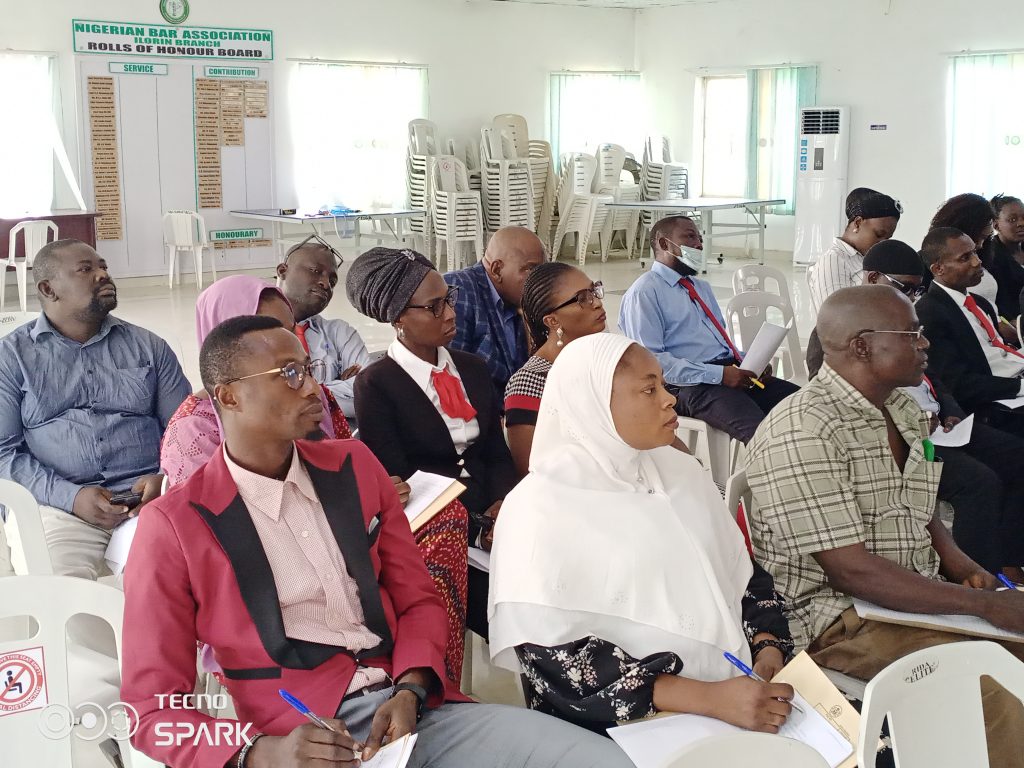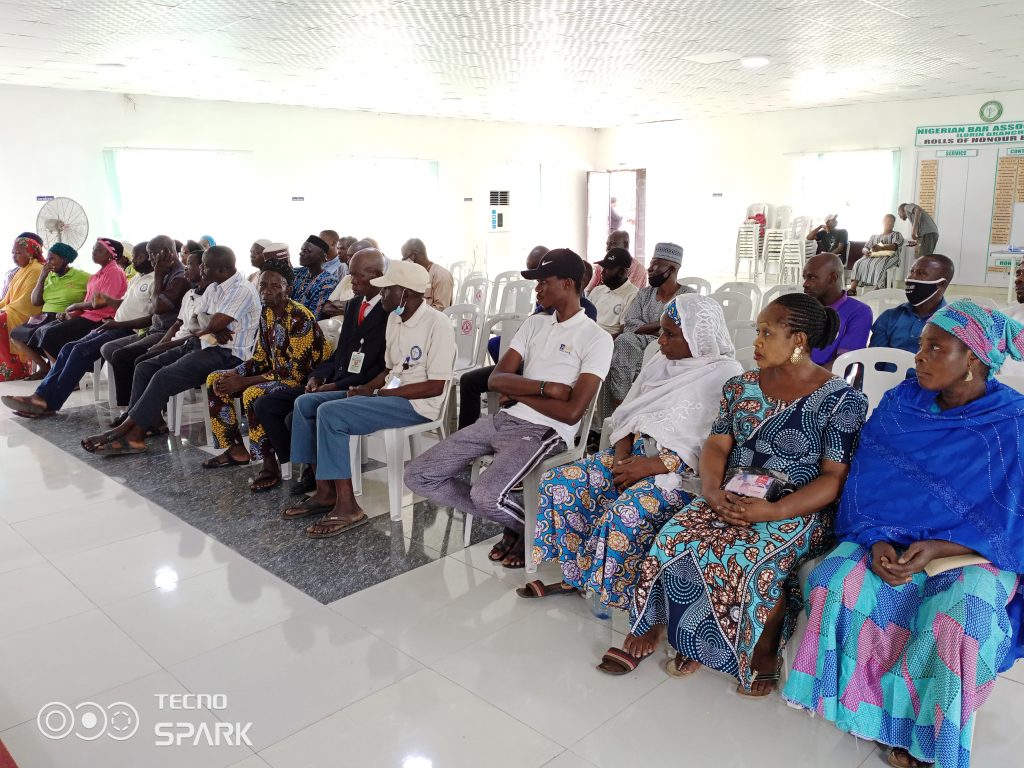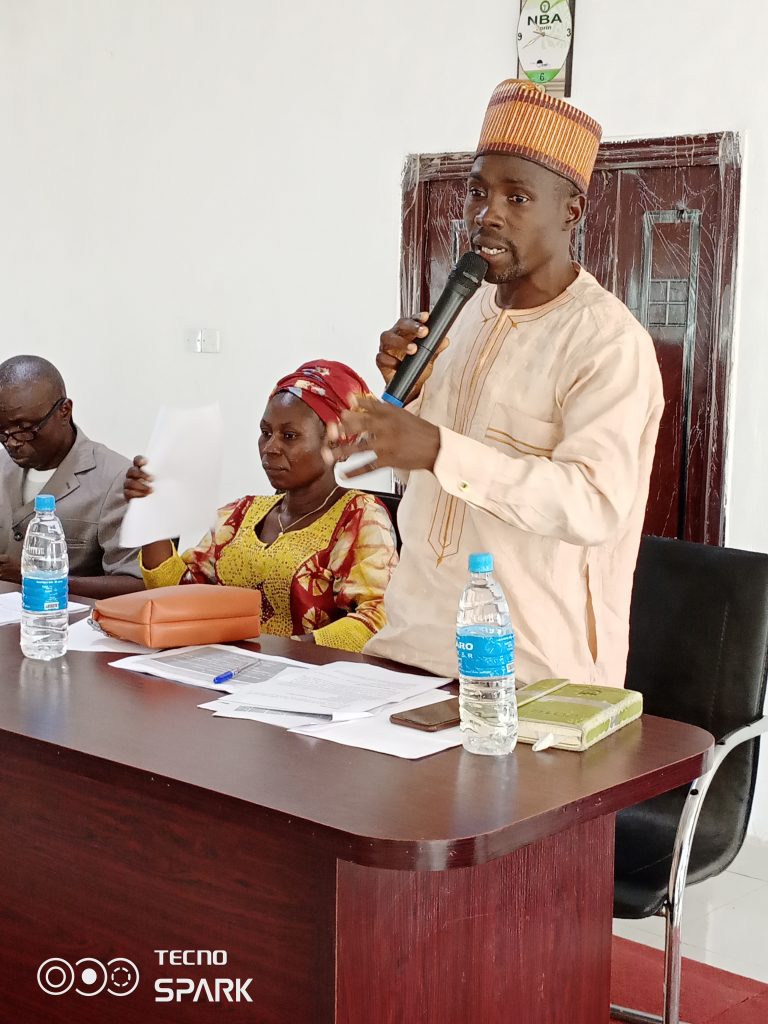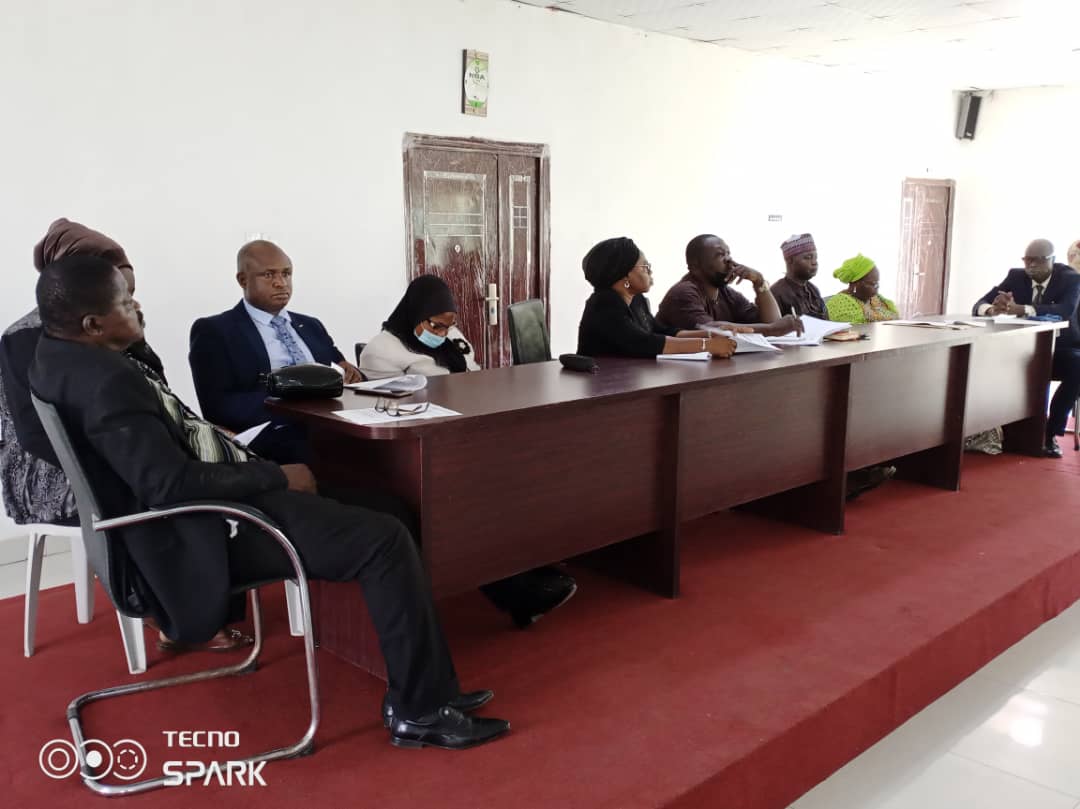The Kwara State Judiciary (High Court of Justice) has organised in-house training/workshop for her staff.
The two weeks in-house training which was held between 15 Nov to 25 Nov, 2021, was aimed at improving service delivery among the staff of Judicial Arm of Government in the State and it was part of the commitment of state’s Chief Judge, Hon. Justice Sulyman D. Kawu to enhance service delivery.
The workshop had as participants Magistrates, Area Court Judges, Account and Budget Officers, Administrative Staff, Probate Staff, Registrars, Bailiffs, Messengers, Cleaners, Confidential Secretary, Typist and Data Processors, Drivers, Protocol Officer and Security Men.
The programme was a good avenue for the participants to get themselves more abreast with the rudiments of their callings.
The training also featured both serving and retired Judges, seasoned administrators and other experts as resource persons.
The training which was organised to update Judiciary workers’ attitude to work, as well as to expose them to international best practices, was the focal point of the Chief Judge of the State, Hon. Justice Sulyman D. Kawu.

One of the main aims and objectives of Justice Kawu since his appointment as the Chief Judge of Kwara State, was to build the capacity of the staff to ensure a total reform of the State Judiciary.
The Chief Register of the High Court, Chief Magistrate Ibijoke Olawoyin, who delivered a paper on “Notable sharp practices of probate staff”, had said that the training was organised for all categories of Judiciary staff in line with the effort of the Chief Judge of the State to ensure prompt dispensation of justice.
According to Olawoyin, the training was geared towards increasing the performance and improve the standard and quality of the State Judicial system and Judiciary staff.
Olawoyin said that the essence of the training was to ensure that Judiciary staff carry out their duties effectively and fast track the dispensation of Justice in the state.
She added that the training, which includes Computer Appreciation, became imperative because of the need to build the capacity of staff.
“The world is improving on so many aspects of life and people must evolve with it to be at the peak of their professions. This can only be achieved by training and re-training of employees,” she said.
The Chief Registrar appreciated His Excellency, Governor AbdulRahman AbdulRazaq for releasing fund for the training and for many other developmental projects in the Judiciary.
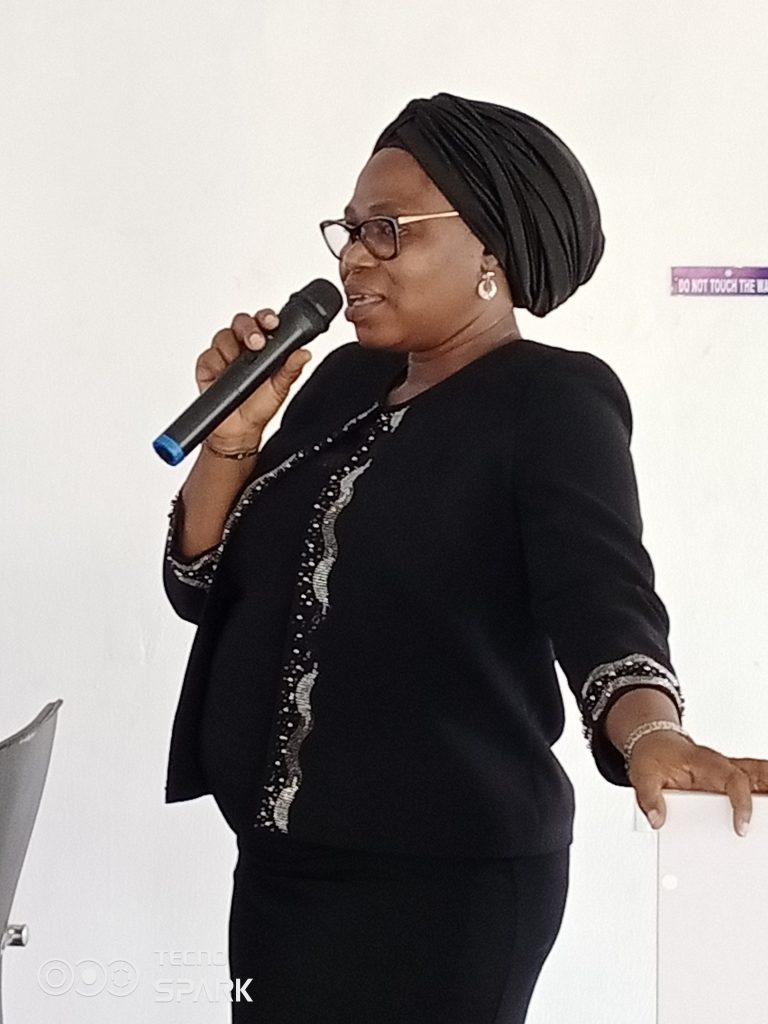
She, however, urged the participants to take advantage of the training to update their knowledge, broaden their horizon and enhance their performance.
Speaking on the topic, “Judicial Discipline and Ethics”, Justice Suleiman Mobolaji Akanbi, said the implication of the Oath of Allegiance is that every Judicial officer has a duty to be faithful to the Federal Republic of Nigeria and show allegiance to it.
The Jurist emphasized the need for Judicial officers to be guided by the Constitution of Federal Republic of Nigeria and Judicial Oath in the discharge of their duties.
This, according to him would guide them against allowing personal interest influence their official decisions.
Dr Joel Adelusi Adeyeye of Department of Jurisprudence and Public Law, Faculty of Law, Kwara State University, Malete, spoke extensively on “A comparison of probate procedure in Kwara State with Kogi, Niger and FCT.
The don called for training and re-training of staff of probate registry as well as enactment of Administration of Estate Law in Kwara State.
While advocating for creation of a division of each State High Court to be known as Family Law and Probate Division, he called for computerisation network of Probate Administration so that staff can even work from home or anywhere they are to avoid delay.
For his part, Justice I.B. Garba (rtd) who spoke on “Confidentiality of Official Documents”, said it is for the adoption of precautionary measures to protect security documents from falling into the wrong hands.
“Ensure that public business is always discharged in accordance with existing laws, rules and regulations of government and with expedition”.
A retired Chief Magistrate Azeez Akinlami Toye in his lecture charged members of the Judiciary on decency. He said that simple, neat dressing with a polite approach are great antidotes of success.
He also spoke on the confidence members of the public have in the Judicial system which he insisted must be upheld at all times.
“The public need to have confidence in Judiciary. The judiciary is often referred to as the last hope of the common man. The sentiment may seem facile, but ignored in our society. Therefore, a lack of confidence in Judiciary will always lead to a situation whereby communities take law into their hands by resorting to self-help.
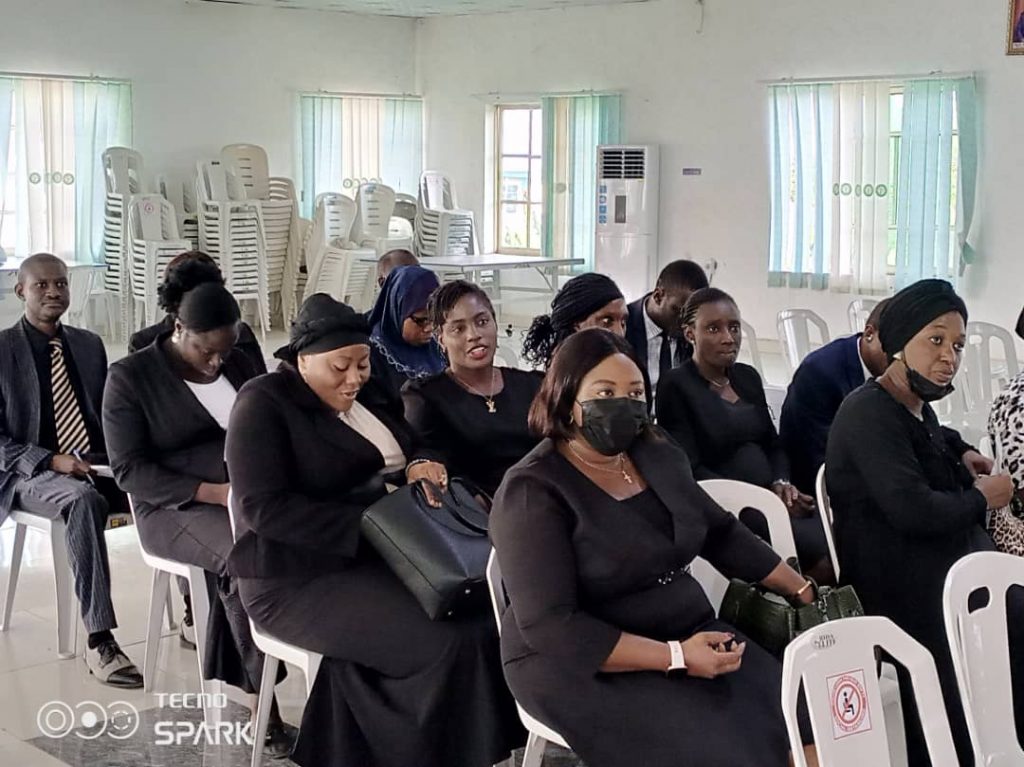
“In order for Judiciary to enjoy confidence of the public in her through the functions of courts she has to have an harmonious working relationship with her employees who constitute the frontal image of the Judiciary to the common man,” he said.
Hon. Justice H.O. Ajayi spoke on “Time and Case Management to Improve the Adjudication and Delivery of Judgement”, while Mr. Femi Alabi and Mr. Oladipo Samuel (Director Planning and Evaluation) spoke on “Enlightenment and updating of financial laws/instruments” and “Code of conduct of Court employees”.
Other resource persons included Mr. W.B. Saka (Secretary, Kwara State Judiciary Service Commission), Mr. Rabiu Onadiran, Mr. Hassan, DSP Adekunle Iwalaye, Mrs. M.B. Abegunde, Mr. Bayo Gegele (Rtrd Mag) and Mrs. F.M. Adebosin (Former Staff Officer, Kwara State High Court), among others.
Mr. Ajibike is from Road Safety Corps and staff of SDC who spoke at the training were Tunde Yahaya and Mrs. C.F. Ajomole, while from the office of the Auditor General was represented by Mr. Lukman Anifowose among others.
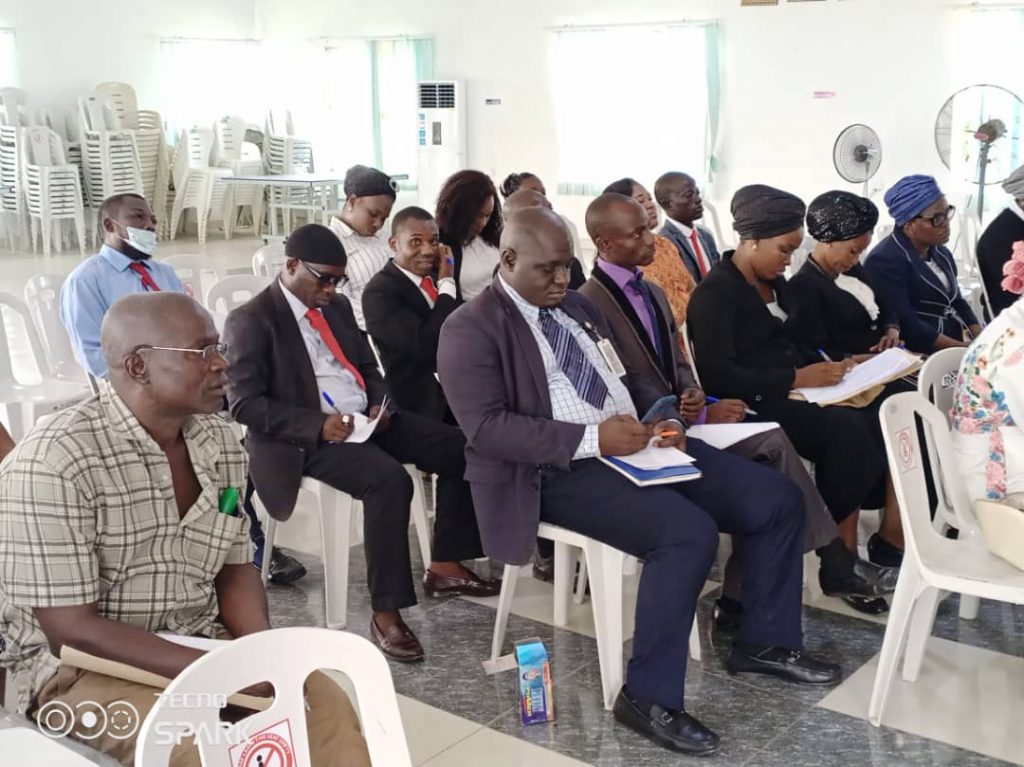
Mr. Toye also presented paper on “Judiciary and it’s Associate Members – Benefit, Conflict and Limitations”.
Other topics discussed at the training/workshop are: Work place safety; Filing and documentation of registry files i.e open and secret registry; Confidentiality of Official Documents and Information; Notable sharp practices registrars, bailiff and court clerks; Computer appreciation, among others.
Some of the participants who spoke with our reporter at the end of the training, described the training as apt and appropriate.
They appreciated the Heads of Judiciary under the leadership of Hon. Justice Sulyman D. Kawu and Chief Registrar, Chief Magistrate Ibijoke Olawoyin for the initiative.
They promised to make good use of knowledge gained at the training to ensure a better service delivery and optimal performance in the discharge of their duties.
Other pictures at the training/workshop:
